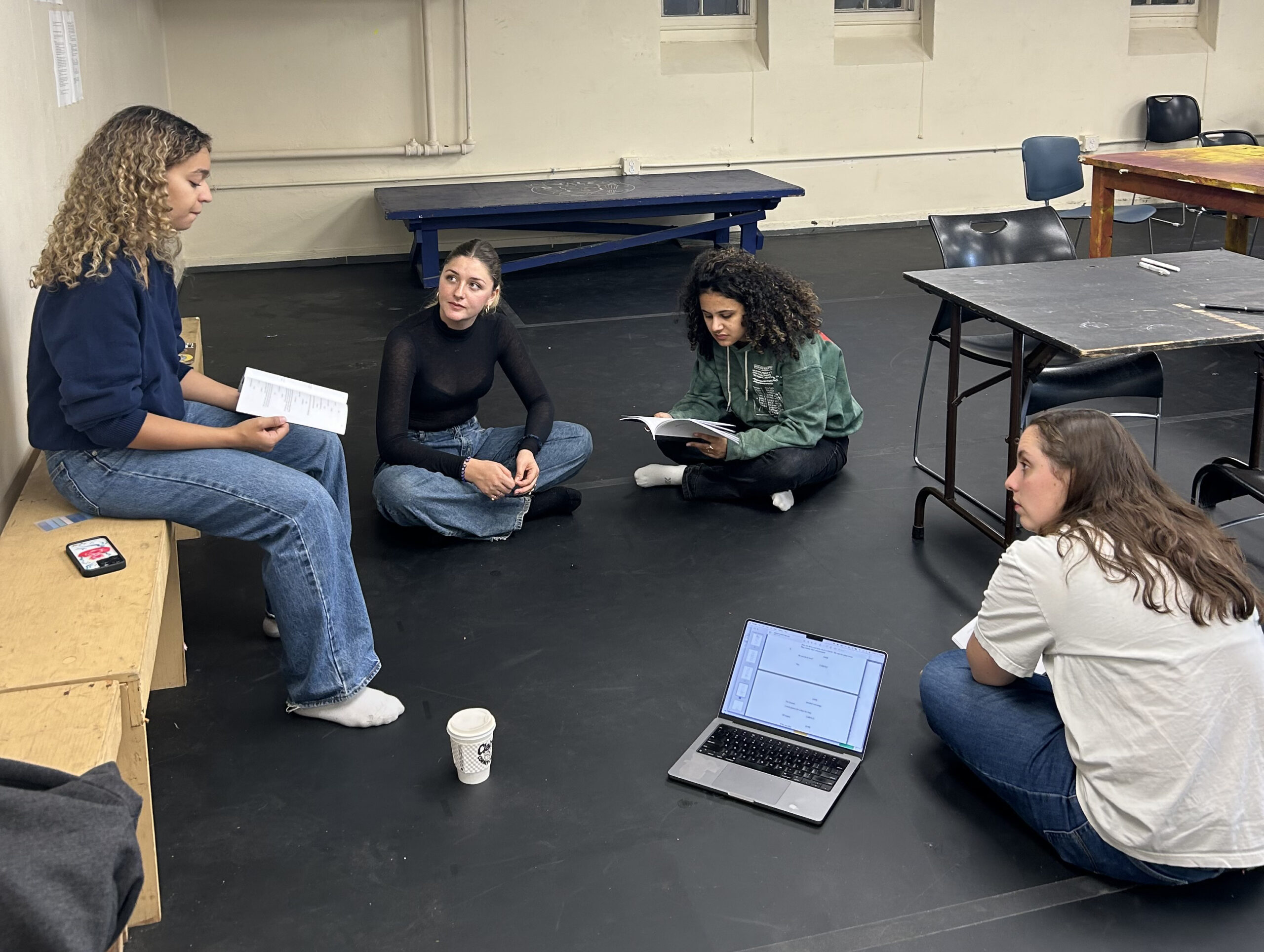“Honesty Hour” delves into nasty and beautiful parts of girl friendships
The one-act original play follows a conversation between Jane and Carole, two seemingly incompatible strangers who develop a relationship through “therapy-like” conversations.

Sofia Gaviria Partow, Contributing Photographer
“Honesty Hour,” an original play by Anaiis Rios-Kasoga ’25, follows a raw, seemingly unfiltered conversation between two women, Jane and Carole.
The one-act play, co-directed by Rios-Kasoga and Sophia Schloss ’25, will premiere on Thursday, Jan. 23, at the Hopper Cabaret. In weekly “honesty hour” talks, the two principal characters speak freely and intimately about their lives; outside of this hour, they remain strangers. Their anonymity allows the dialogue to take the form of a therapy session.
“It gives the audience the chance to see why these two women would ever be interested in each other or put up with each other, and also why they probably, fundamentally, are pretty incompatible,” said Lula Talenfeld ’25, who plays Jane. “I think the experience of knowing that and still loving someone and trying to give them a chance is very relatable.”
This incompatibility seems to come from Jane’s blunt and unforgiving character, juxtaposed by Carole’s sweet yet deeply insecure nature, which drives her constant attempts to earn the love of those around her. During the “honesty hours,” they maintain their anonymity by omitting any personal details that could identify them.
The entire show takes place at a bar, with no scene changes, which allows for an uninterrupted flow that, according to Schloss, gives the play a “raw” feel. With a cast of only seven, the show exudes intimacy.
“I think this story is about female friendship, and female friendship is really complicated, and it can be really ugly and it can also be really beautiful,” said Rios-Kasoga, “Jane is this cynical, closed-off person who deep-down wants to be accepted and loved for her ugly parts, but would never say that. Whereas Carole is a deeply insecure person who is a giver.”
Over summer 2023, Rios-Kasoga participated in a writing program in Paris where she was tasked with writing dialogue without using quotation marks. “Honesty Hour” emerged from the scene she wrote for that assignment, which included characters that she herself didn’t fully understand but was nevertheless intrigued by.
Rios-Kasoga said that her friend, who also participated in the same writing program, had coined that summer her “honesty era.” After looking through Rios-Kasoga’s dialogue, the friend said that it reminded her of conversations she shared with friends, deemed “honesty hours.”
During these hours, they pledged that nothing said would be remembered or held against them.
“It’s called ‘Honesty Hour’ but there’s a little part that’s like, ‘How honest are they really being?’” said Talenfeld. “There’s an unraveling, as the two of them are figuring all of this out about one another, and the audience is like, ‘Wait a second, should I be questioning everything the whole time?’”
After that summer, Rios-Kasoga took a playwriting class at Yale where she developed the scene into a rough draft of the show. Initially, she brought in Schloss as a consultant for the play –– a role that would eventually morph into a co-director position.
Schloss and Rios-Kasoga, both first-time directors at Yale, emphasized the collaborative nature of their rehearsal process, which consisted of numerous discussions and run-throughs.
They shared that most of their rehearsals were quite small, involving the two of them, Talenfeld, stage manager Angelica Peruzzi ’27 and Meridian Monthy ’25, who plays Carole in the show.
“I think that allowed us to have a really, really intentional, character-driven directorial process,” said Rios-Kasoga. “We chatted a lot with Meridian and Lula before we even blocked the show, and we had a long in-depth conversation about who the women were.”
During rehearsals, the directors shared that they would pause throughout their run-throughs to discuss with actors about the characters’ mentalities and motivations. After a second run-through, they would find that the scene had morphed into something completely different.
Speaking on the show’s therapy-like nature, the directors noted that therapy is often attractive to people because therapists have no emotional stake in clients’ lives. Due to this, said Schloss, people can speak to their therapists with total honesty about their thoughts and feelings.
Throughout the show’s progression, however, it becomes apparent that Jane and Carol might be somewhat invested in each other’s lives, adding another layer of complexity.
“It’s been really fruitful as an actor to just get to act on your wildest impulses to really try to empathetically understand the other person,” said Monthy.
The show will run four times from Jan. 23 to 25 in the Hopper Cabaret.







